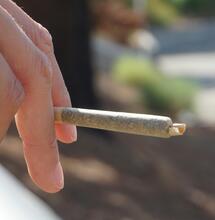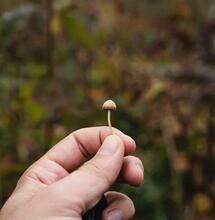Grow with Stoney Tark.

"Fed up of spending on nutrients each and every time you start a new grow? Soft Secrets will help enlighten you on how to make your own home made nutrient..that is just as effective as any leading organic brands. It is simple and effective and will help you save those pennies over 2015.
"Fed up of spending on nutrients each and every time you start a new grow? Soft Secrets will help enlighten you on how to make your own home made nutrient..that is just as effective as any leading organic brands. It is simple and effective and will help you save those pennies over 2015.
"Fed up of spending on nutrients each and every time you start a new grow? Soft Secrets will help enlighten you on how to make your own home made nutrient..that is just as effective as any leading organic brands. It is simple and effective and will help you save those pennies over 2015.
Anybody who has ever lived anywhere in the UK that has had rich soil and close to a river source, can tell you about the stinging Nettle ( Urtiga Dioica ). A member of the Herbaceous Perennial family, these plants have sharp looking leaf blades and a leaf width of around 5 -10cm. They are identified by the entire plant being covered in tiny hollow silica trichomes. Trichomes you say? These tiny hollow hairs contain drops of a Formic Acid. So to keep it simple.. Formic Acid is the simplest Carboxylic Acid. It is also Ant venom. It is a colourless liquid and if you have ever had these small hairs break off into the skin upon contact, you know that irritation and burning sensation that follows after and can last quite a long time. Many people will remember those bumpy read stings around the ankles and around the fingers, whilst looking for a Dot Leaf to try to kill the sting with some form of an old wives' tale solution! Now we see why this plant remains so well protected and we will show you how to make your own Nettle tea extract, from that same Nettle patch that has been growing for years down the road or in that field near your house.
The stinging Nettle has many well known medical benefits to those that choose it as part of a balanced diet. It is also used as a natural green colouring agent ( E140 ) and is widely used through out the world for many different reasons. One of the greatest things is when you feed this to a plant! A Nettle foilar feed works wonders. Most Nettle tea extracts will read an N-P-K of 8-3-20. This means that it is 8 part Nitrogen, 3 part Phosphorus and 20 part Potassium. Plants require high levels of Potassium to promote large blooming during flowering, so this is an excellent feed for flowering but as you will read, it is also very beneficial through out the entire grow. Nettle extract is very high in Calcium and Magnesium as well as Vitamin C. When applied to soil or any medium, Iron will be slowly released and become available to the plant through the soil. Beneficial bacteria and microbes are present and since I have been using on my small plants, I now have roots that are on par with aero cloning. As well as many vitamins and hormones available, Nettle extract is a proven prevention for fungus that grows on plants and is noted to make plants grow hairy and sturdy not long after foliar application. It is quite well known that Neem is an anti fungal agent but also Cinnamon, Clove, Chamomile and Nettle are most effective too. Nettle extract is used in ' Bio Dynamic ' farming. This is a method of soil science. According to these farmers, this process ensures much bigger, stronger and resistant plants, that would ultimately yield a more potent product in terms of cannabis. These outcomes are achieved by giving the soil its own intelligence, which allows it to better increase sensitivity and interacting with the surroundings and environment better than those untreated. There is only one way to find out for yourself and that is by following the step by step guide and putting it to the test!
STEP BY STEP GUIDE
What you will need:
- Access to fresh Nettle plants
- Large bucket and rain water
- Pair of gloves
- Pair of stockings to filter
- Bottle to store away.
- When picking Nettles, always wear a pair of gloves and cover up any exposed legs and arms. It won't take long before those stings discourage you and you eventually forget why your doing it in the first place. Pick Nettles that are around 1-2 metres tall with a nice healthy glow. You will struggle to actually find a Nettle plant that is ill or have any spider or bug issues, so finding a good source will be very easy. Pick the leaves off and throw away the stems. You only want to extract from the leaves. Get as many leaves as possible as the process involves soaking all the leaf matter.
- Put all the leaves into the bucket of rain water or tap water that has been left out for any chlorine to evaporate. The chlorine will kill any beneficial microbes and bacteria within which defeats the purpose of the symbiotic relationship between microbes and the plant. After 14 days we can remove the liquid extract. Keep stirring on a daily basis to obtain best results. The leaves will become thick and lumpy and you will notice quite a potent odour.
- After 14 days, strain the dark looking liquid. Use a sieve or piece of cloth but to produce the clearest. I use cloth and allow the extract to drip through into my bottle to store in. When you have removed the liquid, simply dump the old soggy remains on a compost pile. Store the final cleaned up extract in a cool dark place and try to avoid sunlight and leaving outdoors. When you are ready then mix at a ratio of 1:10 to ensure you have a diluted long term supply.
- Apply to the soil as normal and also foliar feed with a mild solution. Spray on the undersides of leaves also. Use from start to finish or anytime you choose but it is a very fast acting organic supplement so don't be shy and don't be put off by any smells also. It is well worth it.
Summary: Many growers who have used their own Nettle tea have enjoyed explosive roots, bigger harvests and deep organic lip licking flavours that lack any salty nutrient build up. Buds smell a lot more and plants really stand strong and shine. The plant's immune system really strengthens and pests do not seem to like the smell that the tea produces, so acts as a good deterrent to indoor and outdoor pests.
Good luck on making your own super organic Nettle tea and saving money on nutrients at the same time! "



